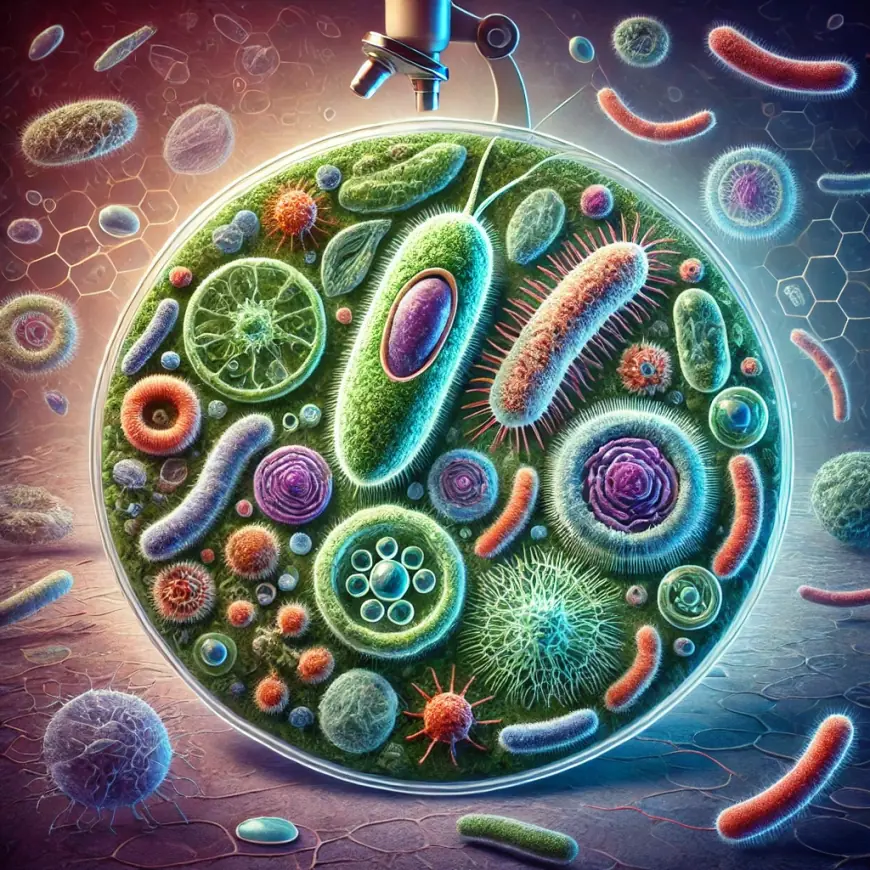What Is the Role of Hygiene in Preventing Protozoal Infections?
Protozoal infections, caused by single-celled microorganisms known as protozoa, pose a significant health risk worldwide.

Protozoal infections, caused by single-celled microorganisms known as protozoa, pose a significant health risk worldwide. These infections are often contracted through contaminated water, food, or contact with infected individuals or animals. Maintaining proper hygiene is one of the most effective ways to prevent the spread of protozoal infections. This article explores the role of hygiene in preventing these infections and discusses treatment options, including nitazoxanide 500mg.
Understanding Protozoal Infections
Protozoa are microscopic organisms that thrive in various environments, including soil, water, and the human body. Some protozoa are harmless, while others can cause serious diseases such as
-
Giardiasis caused by Giardia lamblia, leading to diarrhea, nausea, and weight loss.
-
Amebiasis caused by Entamoeba histolytica, leading to severe diarrhea and liver complications.
-
Cryptosporidiosis caused by Cryptosporidium, often resulting in gastrointestinal distress.
-
Malaria caused by Plasmodium species, transmitted through mosquito bites, leading to fever, chills, and severe complications.
-
Toxoplasmosis caused by Toxoplasma gondii, which may cause flu-like symptoms and severe effects in immunocompromised individuals.
Importance of Hygiene in Prevention
Hygiene plays a critical role in preventing protozoal infections by reducing exposure to the organisms responsible for these diseases. Some key hygiene practices include:
1. Hand Hygiene
Handwashing with soap and clean water is one of the most effective ways to prevent protozoal infections. Washing hands thoroughly after using the restroom, before eating, and after handling animals can prevent the spread of infectious protozoa. If clean water and soap are unavailable, alcohol-based hand sanitizers can be used as an alternative.
2. Safe Drinking Water
Contaminated water is a major source of protozoal infections, especially in regions with poor sanitation. To prevent infection
-
Drink only filtered or boiled water.
-
Use water purifiers or chlorine tablets in areas with unsafe water supplies.
-
Avoid consuming untreated water from lakes, rivers, or unregulated wells.
3. Food Safety Measures
Protozoa can contaminate food, leading to infections when consumed. To ensure food safety
-
Wash fruits and vegetables thoroughly before eating.
-
Cook meat to recommended temperatures to kill any parasites.
-
Avoid consuming raw or undercooked seafood and meat.
-
Store food at appropriate temperatures to prevent microbial growth.
4. Proper Sanitation and Waste Disposal
Sanitation measures such as proper disposal of human and animal waste help reduce the spread of protozoal infections. Some key practices include
-
Using clean and well-maintained toilets.
-
Disposing of fecal matter properly, especially in outdoor settings.
-
Keeping living areas clean and free from animal waste.
5. Personal Hygiene Practices
In addition to handwashing, maintaining personal hygiene can further reduce the risk of protozoal infections. Key practices include
-
Bathing regularly and keeping the body clean.
-
Avoiding contact with contaminated soil and objects.
-
Washing clothes and bedding regularly.
Treatment of Protozoal Infections
While prevention through hygiene is the best approach, treatment options are available for those who contract protozoal infections. One of the most effective medications is nitazoxanide 500mg, which is used to treat various protozoal infections, including giardiasis and cryptosporidiosis.
Nitazoxanide 500mg: Uses and Effectiveness
Nitazoxanide 500mg is an antiprotozoal medication that works by inhibiting the energy metabolism of protozoa. It is commonly prescribed for
-
Giardiasis typically a 3-day course of nitazoxanide 500mg twice daily.
-
Cryptosporidiosis prescribed for immunocompetent individuals to alleviate symptoms.
-
Other parasitic infections in some cases, it may be used for treating amoebiasis and other protozoal diseases.
The medication is generally well tolerated, but potential side effects may include nausea, stomach pain, and headaches. It is important to take nitazoxanide 500mg as prescribed by a healthcare provider.
Conclusion
Hygiene is a powerful tool in preventing protozoal infections. By practicing proper handwashing, ensuring safe drinking water, following food safety measures, and maintaining overall cleanliness, the risk of infection can be significantly reduced. In cases where infection occurs, nitazoxanide 500mg serves as an effective treatment option. A combination of preventive hygiene practices and appropriate medical interventions can help reduce the burden of protozoal diseases worldwide.












